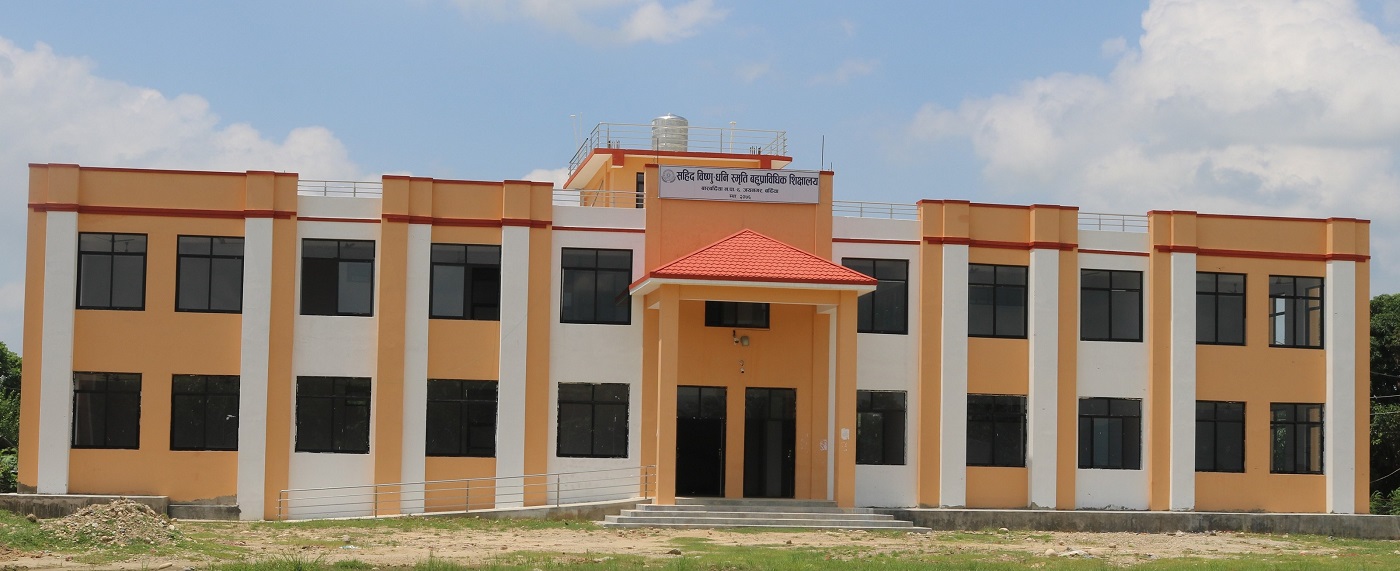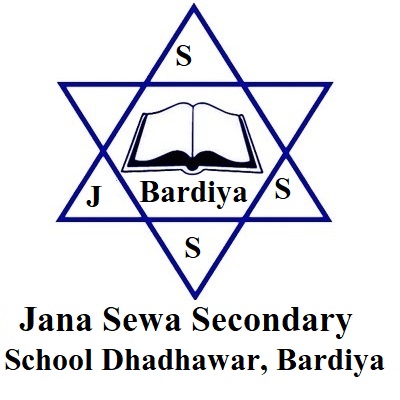Overview
Sahid Bishnu Dhani Memorial Polytechnic Institute, located in Barbardiya Municipality, Bardiya, is a community-based educational institution established on 30 Ashadh, 2076 BS. Affiliated with the Council for Technical Education and Vocational Training (CTEVT), it was founded with a clear purpose: to offer accessible, skill-based education to youth across Nepal. This institution plays a significant role in empowering students through practical learning in forestry and civil engineering.
Located in the western region of Nepal, the institute seeks to bridge the gap between demand and supply in technical education. It offers affordable, career-oriented programs for students from different socioeconomic backgrounds. The polytechnic is managed through a collaborative partnership between Barbardiya Municipality and CTEVT.

Academic Programs
Currently, the institute offers the following three-year diploma courses:
-
Diploma in Forestry (Affiliated with CTEVT, 40 Seats)
-
Diploma in Civil Engineering (Affiliated with CTEVT, 48 Seats)
These programs focus on practical knowledge and field experience, preparing students for entry-level positions in the public and private sectors. Plans are in place to introduce additional programs such as Staff Nurse, Health Assistant (HA), Lab Technician, and Pharmacy.
Admissions Process
The admission process follows CTEVT's standard guidelines. Students are selected through a merit-based entrance examination.
Eligibility Criteria:
-
Completion of Secondary Education Examination (SEE) or equivalent
-
Minimum GPA and subject requirements as per program needs
-
Application through prescribed forms during the intake period
Priority is given to students from disadvantaged, marginalized, and local communities per the inclusiveness policy.
Academic Life
Academic life at the institute is structured and disciplined. The educational environment supports consistent learning and personal development. Although infrastructure development is ongoing, the institution maintains a learner-friendly atmosphere. With upcoming facilities like modern classrooms, laboratories, and libraries, students will benefit from an enhanced educational setting.
Faculty and Teaching Methodology
The institute emphasizes practical and life-oriented education. Faculty members have technical expertise and field-level experience. The teaching approach includes:
-
Practical classes in labs and workshops
-
Field visits and survey work for applied knowledge
-
Continuous assessment through internal evaluations
-
Supportive and interactive learning practices
The methodology focuses on shaping responsible and skilled individuals who can contribute to national development.
Institute Facilities
Although still in development, the institute is expanding with essential facilities:
-
Separate academic and administrative blocks
-
Basic workshop spaces and classrooms
-
Temporary library and student support units
Future plans include establishing:
-
Science and technical laboratories
-
ICT-enabled learning spaces
-
Hostel and cafeteria facilities
Student Life and Extracurricular Activities (ECA)
The institute encourages a healthy balance between academics and extracurricular engagement. Students actively participate in:
-
Cultural and traditional events
-
Awareness campaigns
-
Community service programs
-
Group discussions and skill-development workshops
These activities promote confidence, communication, and teamwork, vital for holistic development.
Scholarships and Financial Aid
Understanding the financial barriers many students face, the institute offers scholarship quotas in line with CTEVT provisions.
Types of Scholarships:
-
Full scholarships for economically underprivileged students
-
Reserved seats for Dalit, Indigenous, Madhesi, Muslim, and remote-area students
-
Special quotas for girls and students with disabilities
This approach improves access to education for students from all backgrounds.
Achievements and Recognitions
Although newly established, the institute has already made notable progress:
-
Successful operation of two CTEVT-affiliated diploma programs
-
Steady enrollment from diverse districts
-
Recognition for promoting inclusive technical education in rural Nepal
With further development, the institute is poised to become a regional center for skill-based learning.
Why Choose This Institute?
Sahid Bishnu Dhani Memorial Polytechnic Institute provides a meaningful alternative to urban-based institutions. Key reasons to consider this college:
-
Affordable and quality education under CTEVT affiliation
-
Locally relevant programs with practical applications
-
Priority admission for marginalized and rural youth
-
Teaching that builds both knowledge and character
-
A vision rooted in self-reliance, humanity, and progress
Historical Background
The institution honors two local martyrs—Bishnu Kumar Pokharel and Dhani Ram Tharu, both from Barbardiya Municipality.
Bishnu Kumar Pokharel was known for his political activism, literary interest, and resistance against exploitation. He actively participated in grassroots political movements and was martyred during the People’s War in 2055 BS.
Dhani Ram Tharu, also martyred in 2055 BS, was a socially committed individual who participated in the Thumni Revolution and opposed landlord exploitation. His role in local development is still remembered.
The institute is a tribute to these figures, symbolizing a commitment to justice, education, and empowerment.
Institutional Vision and Mission
Vision: To support vocational learning and self-reliance through quality education.
Mission: To produce competent, positive-minded, and responsible citizens by delivering affordable and practical education accessible to all.
Key Goals:
-
Support job creation through skill-based education
-
Widen access for poor and underprivileged students
-
Promote inclusiveness in technical training
-
Contribute to local development by producing skilled manpower in health, agriculture, forestry, and construction.
-
Instill values like honesty, morality, and cooperation among students
Message from the Mayor – Mr. Durga Bahadur Tharu
According to Mayor Tharu, the establishment of this institute is a realization of the sacrifices made by the martyrs. It provides a platform for students, especially from low-income farming families, to gain valuable technical education. The mayor envisions this institution as a driving force for social and educational equity in Bardiya.
His statement underscores the municipality’s commitment to making education accessible and meaningful, particularly by linking it to real-world skills and opportunities.
Conclusion
Sahid Bishnu Dhani Memorial Polytechnic Institute is more than a technical school—it symbolizes social progress. It seeks to change the future of young people in rural Nepal by allowing them to learn, grow, and contribute meaningfully to their communities. The institute's inclusive approach, locally relevant programs, and committed leadership are essential to equitable education and sustainable development in the region.












